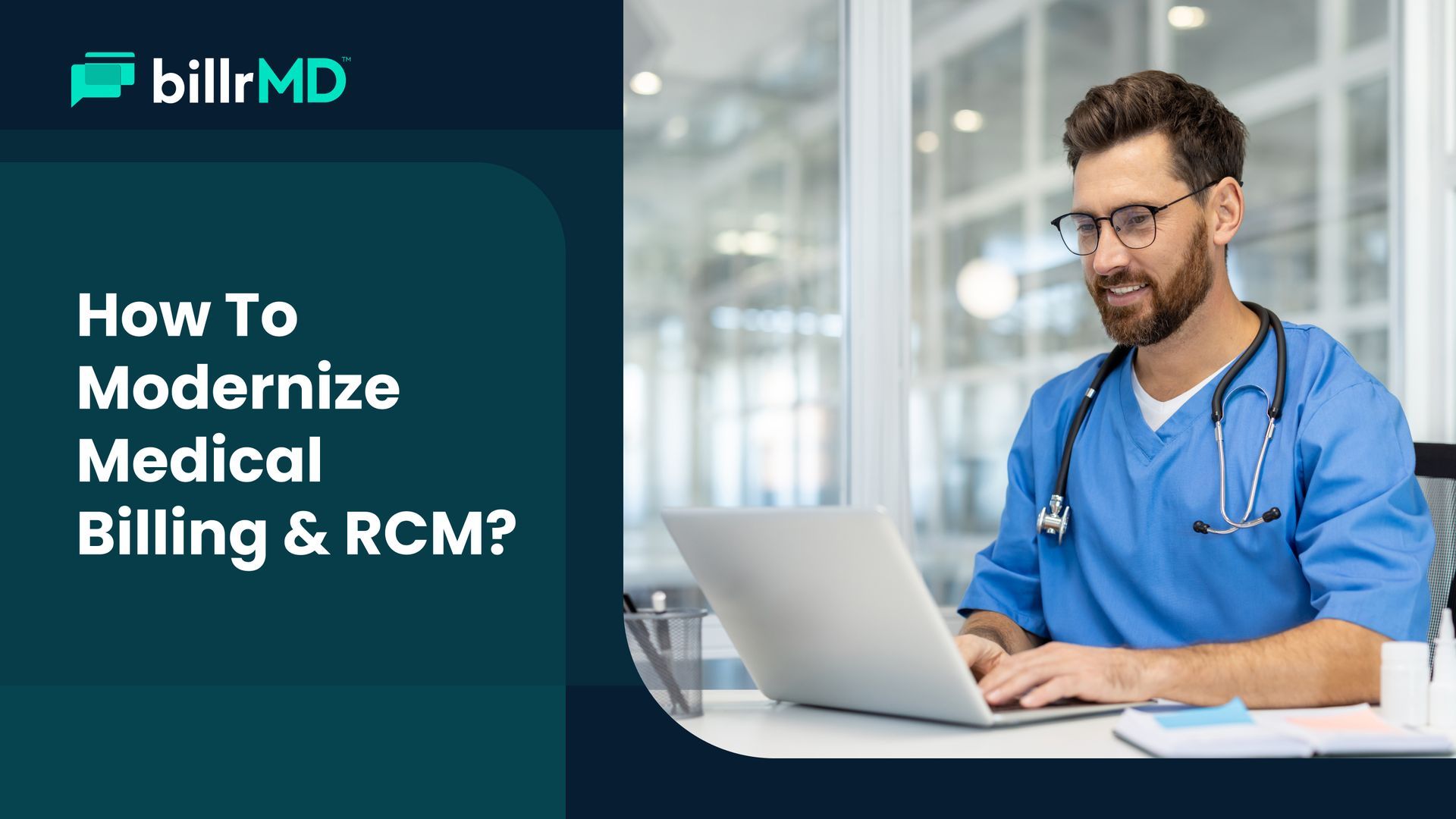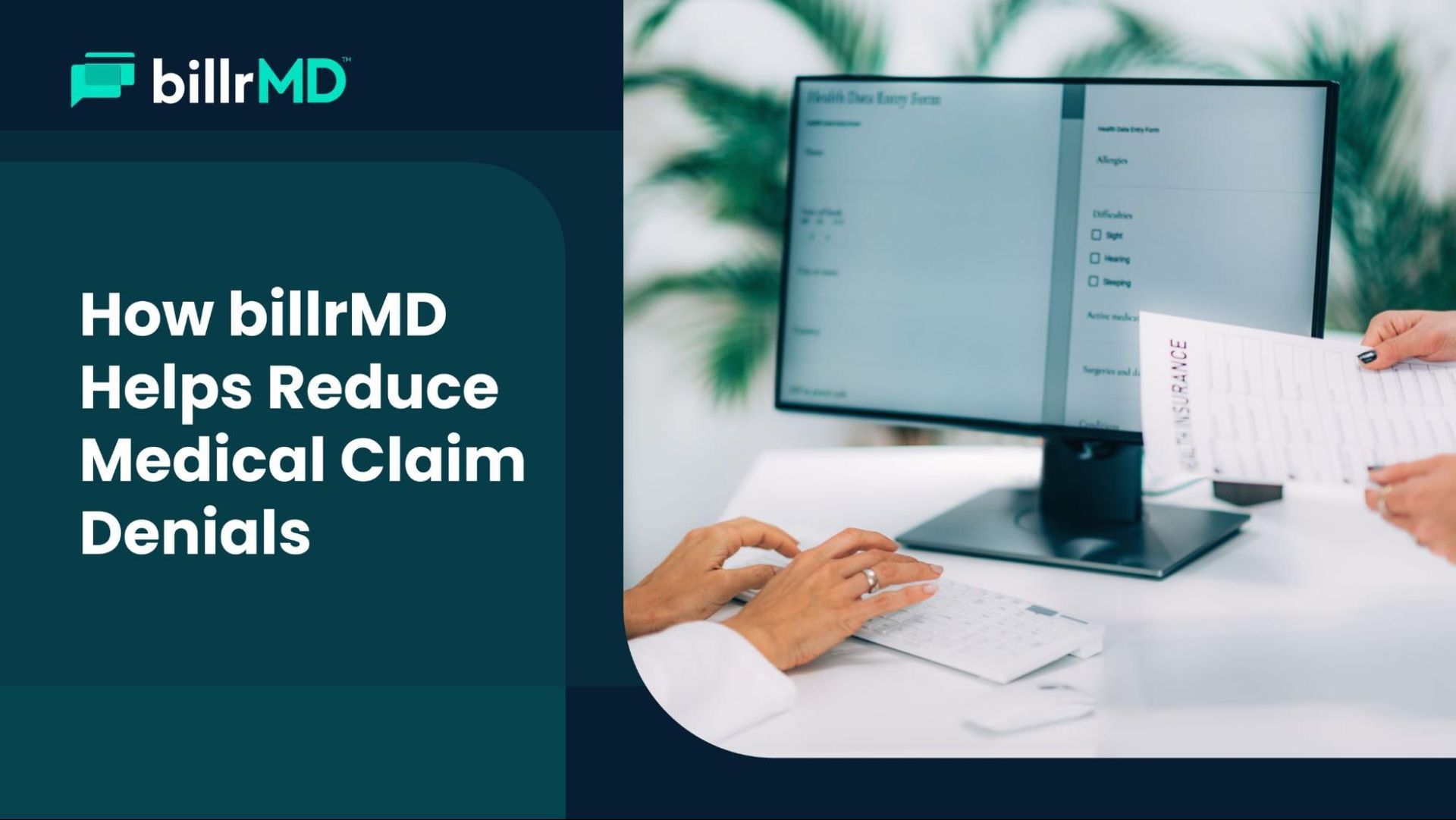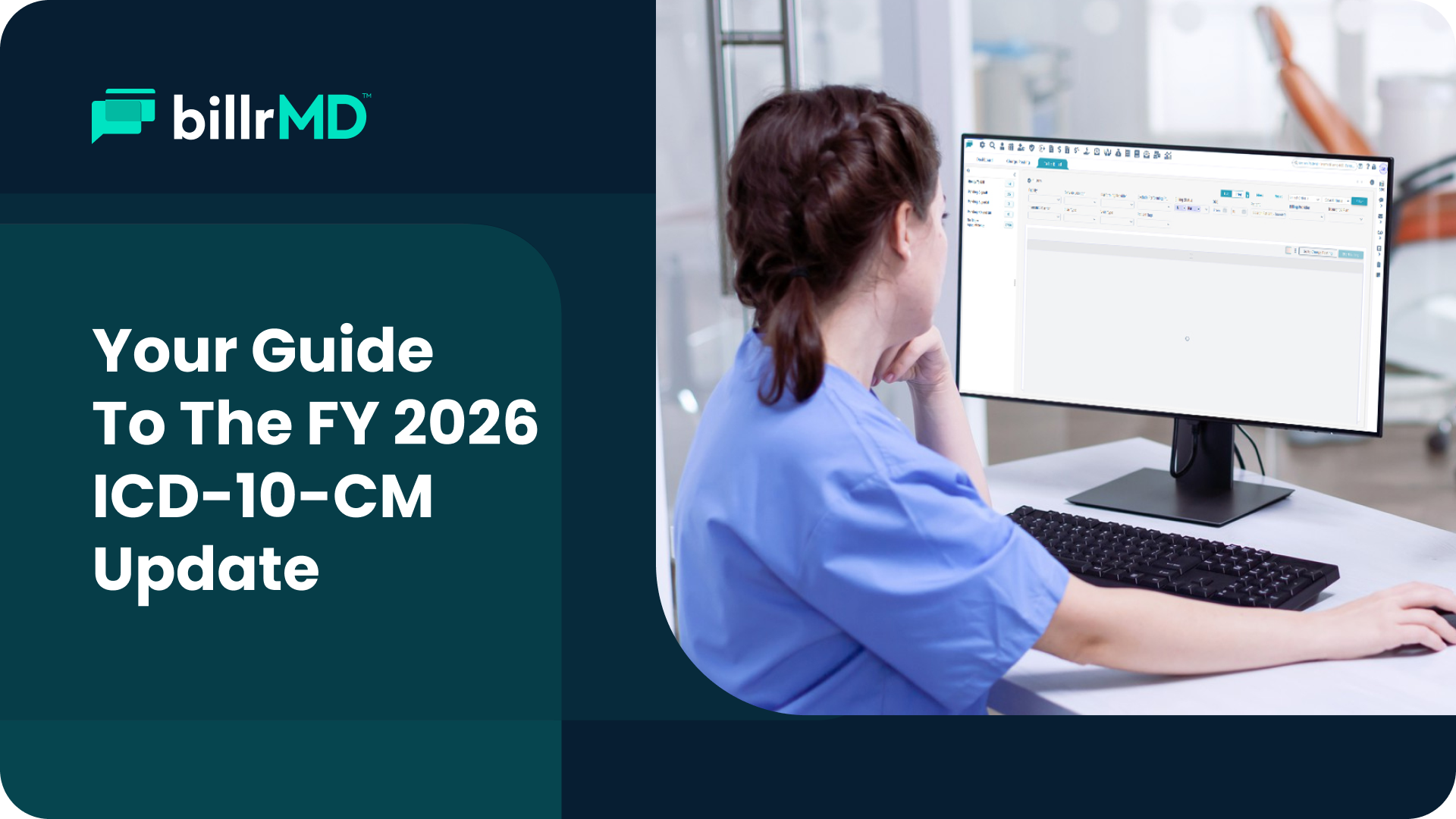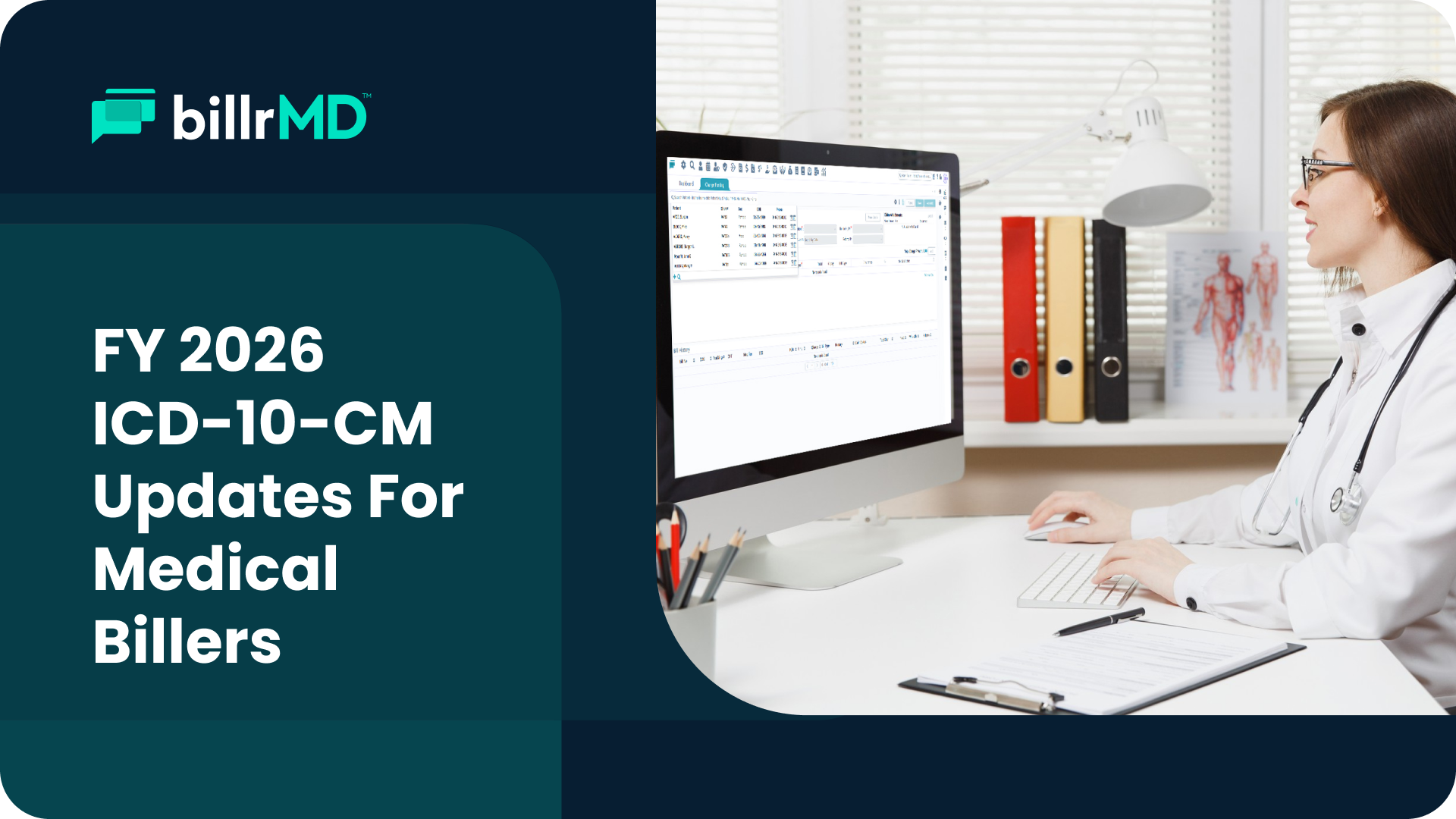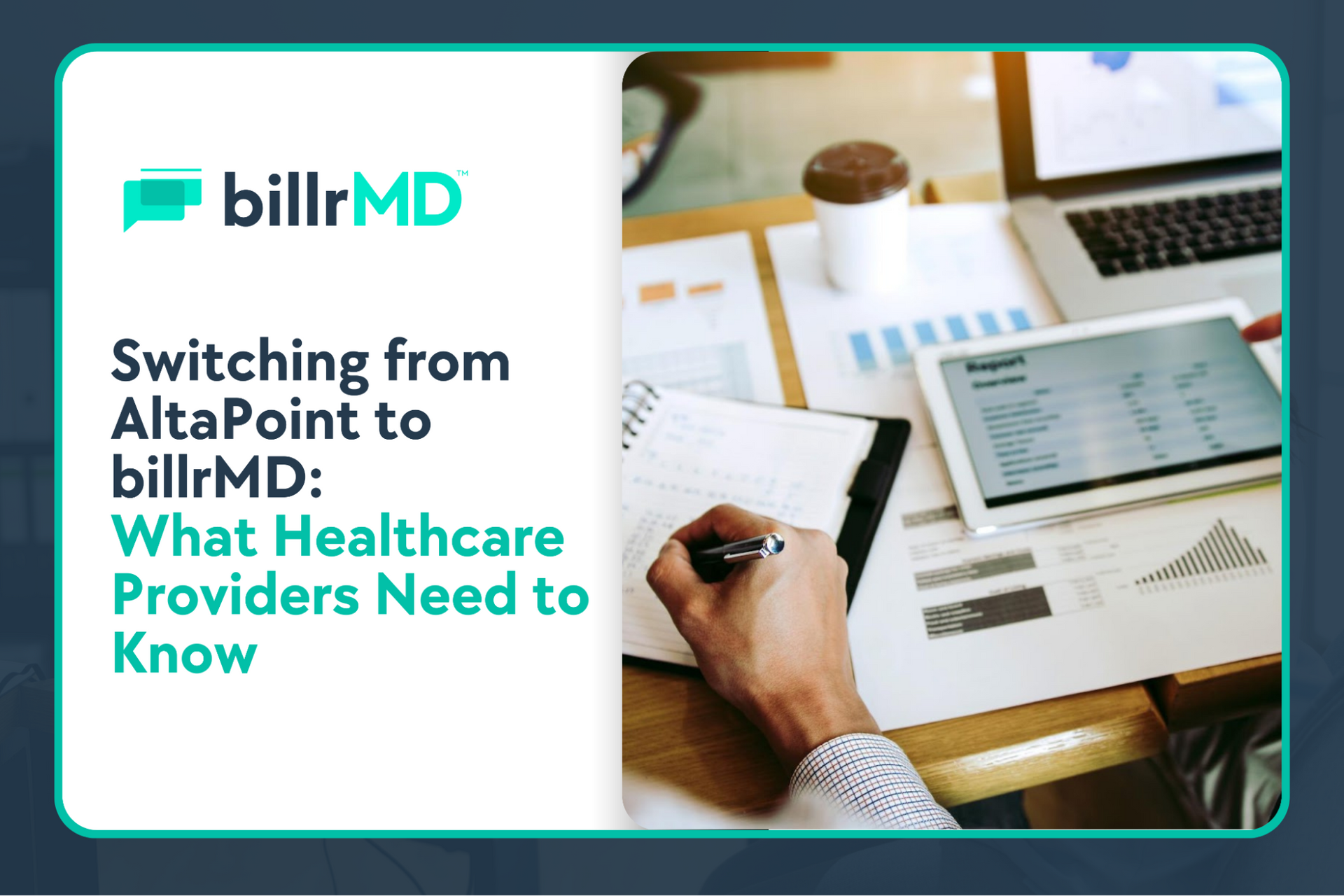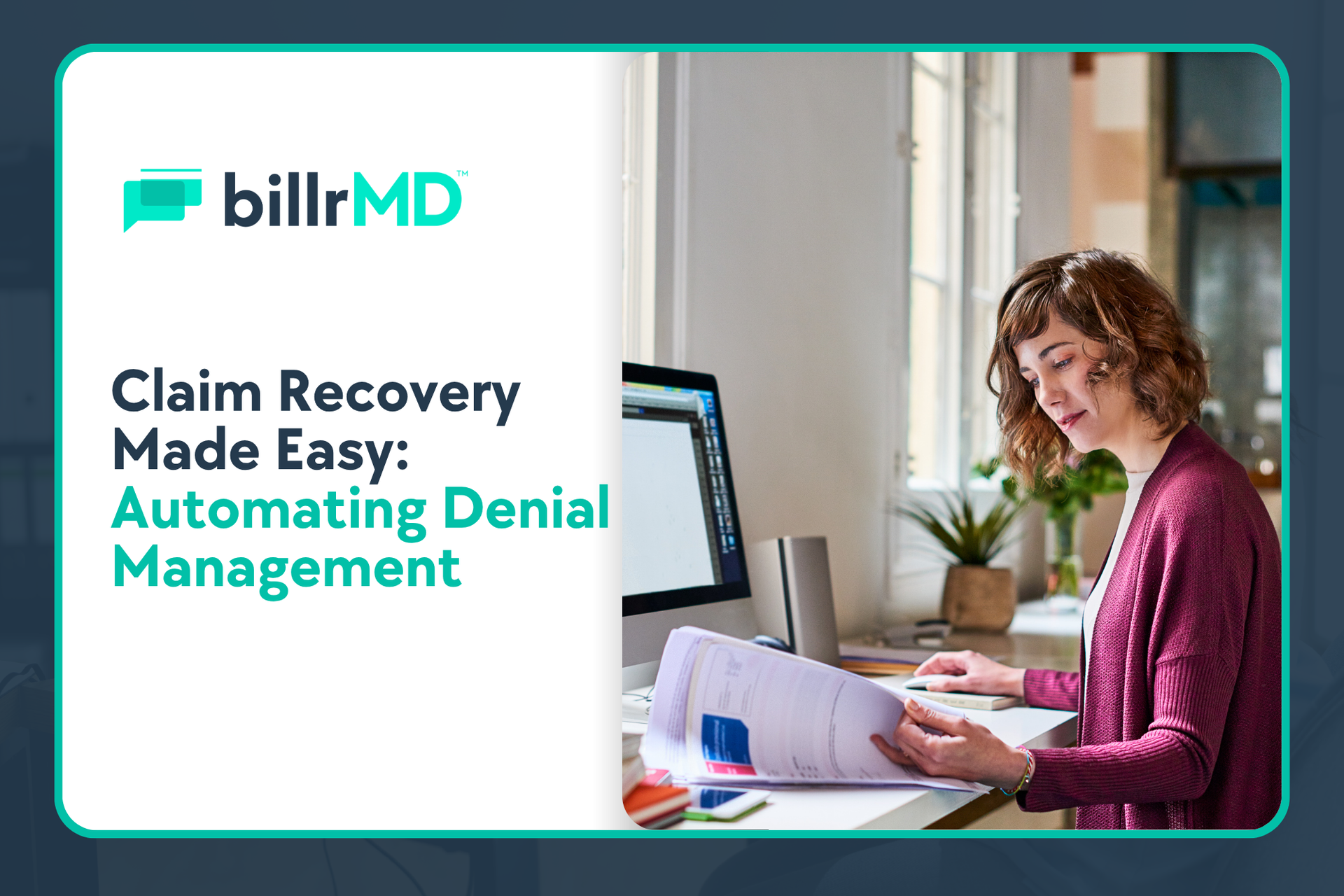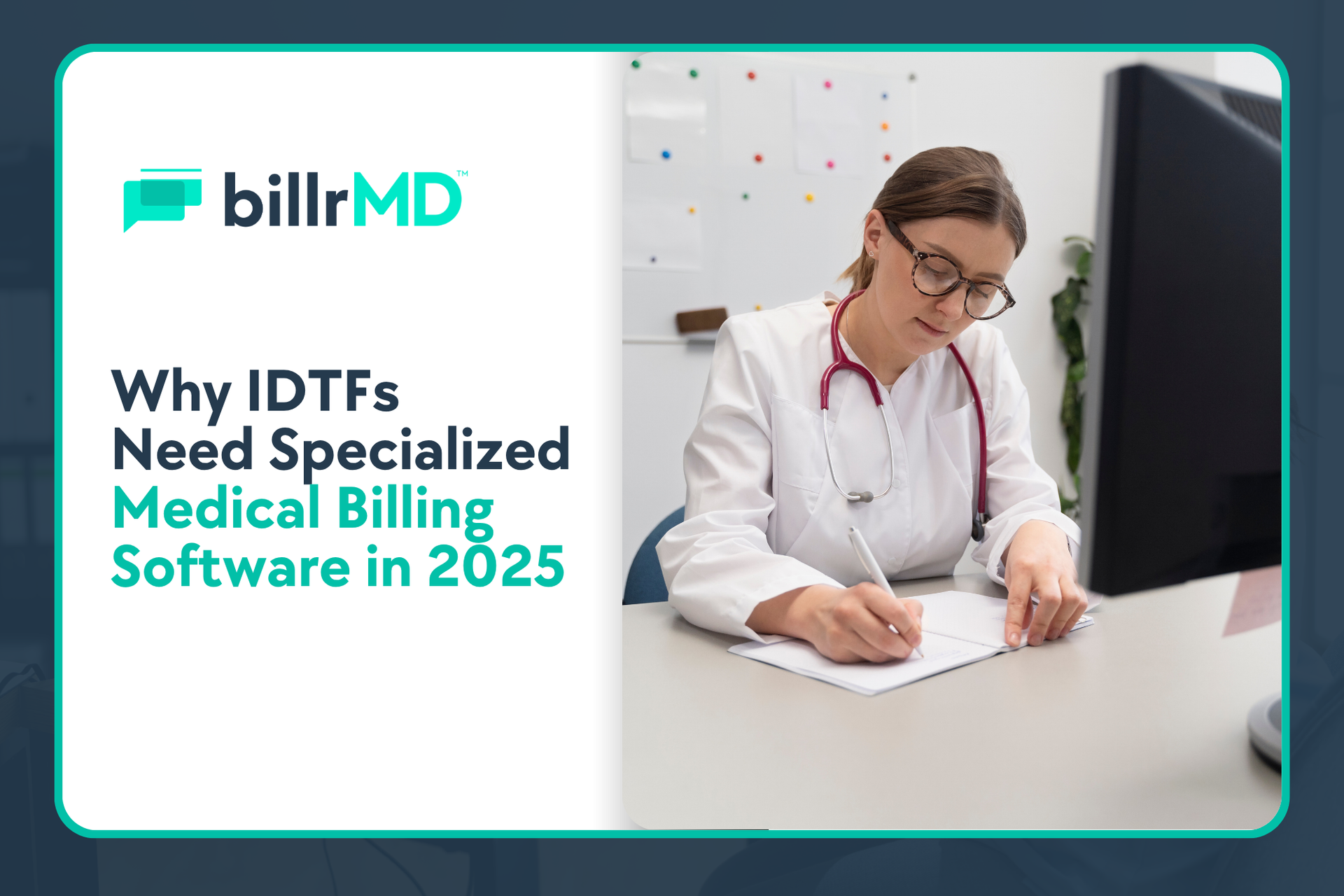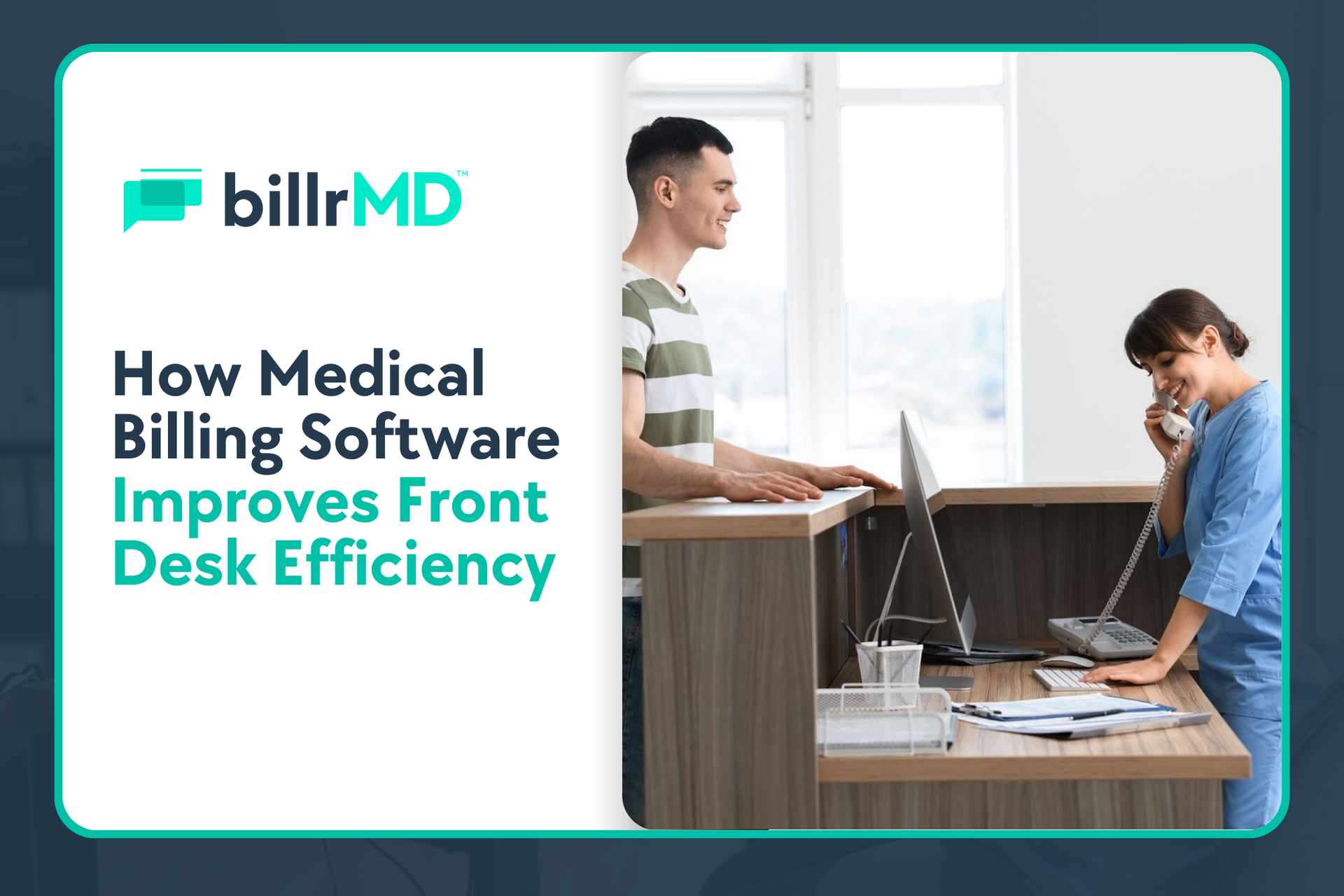HIPAA Compliance: Protecting Patient Information with Medical Billing Software
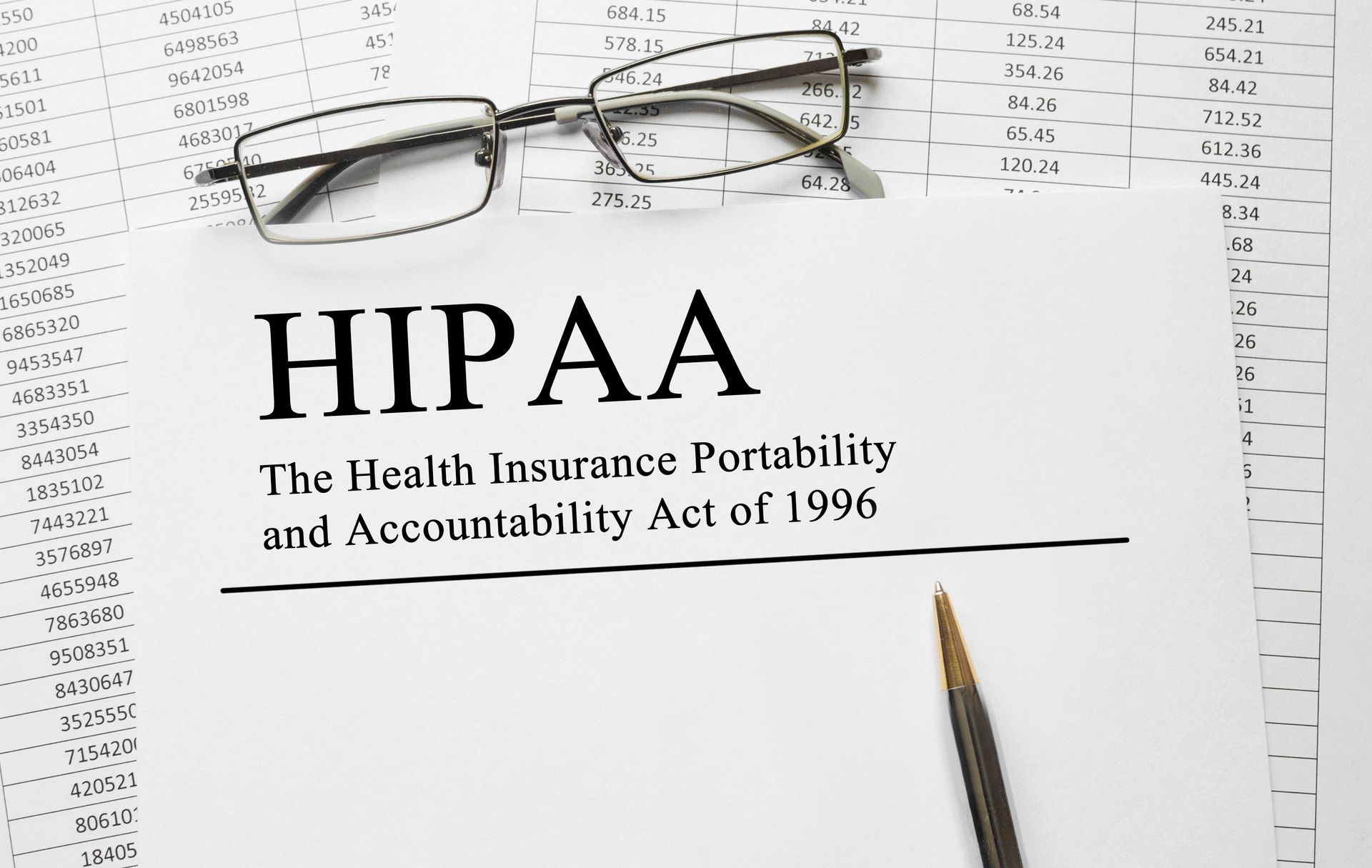
Did you know that in the first six months of 2024, a total of 19,444,714 individuals in the United States were affected by healthcare-related data breaches?
According to the Department of Health and Human Services (HHS), the 253 healthcare providers responsible for the breaches are under investigation for violating the Health Insurance Portability and Accountability Act of 1996 (HIPAA).
Cybercriminals consider healthcare records one of the most valuable type of information in the world, so they will try to steal any electronic protected health information (ePHI) they can get their virtual hands on. And they’re not just targeting electronic health record systems—they’re going after billing systems, too.
As data breaches become increasingly common, equipping your practice with a HIPAA-compliant and cyber-secure billing system is more critical than ever. Web-based billing platforms such as billrMD offer enhanced security features designed to protect patient data and provide peace of mind.
Your Medical Billing Software’s Role in HIPAA Compliance
HIPAA was established to protect the privacy and security of patient information, making it a cornerstone of healthcare compliance and patient trust. Adhering to HIPAA standards isn’t just about meeting legal obligations; it's about upholding the highest ethical standards in patient care and data management.
A medical billing software with advanced security features can play a vital role in your HIPAA compliance journey. Here’s how it can safeguard your sensitive patient data and help you navigate security regulations with confidence and efficiency:
Secure Data Management
A HIPAA-compliant billing software ensures the secure storage and transmission of your practice’s electronic protected health information (ePHI). This includes implementing the following measures to protect sensitive data from unauthorized access or breaches:
- Encryption ensures that only authorized personnel can access or read your ePHI.
- Access controls allow you to restrict data access based on certain criteria.
- Audit trails enable you to track and log all access and changes to your patient data.
Automated Compliance Monitoring
A web-based medical billing software can streamline and simplify the monitoring of your HIPAA regulation compliance. Regular checks are conducted to ensure the software and processes adhere to the latest regulatory requirements.
- Automated updates ensure ongoing HIPAA compliance without needing manual intervention.
- Compliance alerts notify you and your team of potential compliance issues.
- Reporting tools provide comprehensive reports on compliance status, allowing you to demonstrate adherence to HIPAA requirements during audits or inspections.
Enhanced Patient Privacy
By streamlining billing processes and minimizing the need for manually handling patient information, your medical billing software helps maintain patient privacy and reduce the risk of data breaches.
- Data minimization reduces the risk of unwanted ePHI exposure by limiting the amount of ePHI access.
- Secure communication ensures that your ePHI stays safe even as you conduct patient data-related exchanges, such as billing inquiries and claims submissions.
- Employee training helps your staff learn HIPAA compliance best practices and practice protocols.
Key Features to Look for in HIPAA-Compliant Billing Software

Investing in HIPAA-compliant billing software is crucial for safeguarding your clinic data and ensuring regulatory compliance. The right software should not just streamline your billing processes; it must also have robust security features.
When choosing a medical billing software, here are a few questions you can ask to ensure your practice benefits from features that enhance HIPAA compliance:
Does it have user authentication?
The Technical Safeguards section of the HIPAA Security Rule requires healthcare information systems to implement procedures that authenticate the identity of persons or entities seeking access to ePHI.
To ensure that only authorized personnel can access sensitive patient data, healthcare billing systems must incorporate strict access control measures, such as:
- Mandatory Access Control: A central authority regulates access rights based on multiple levels of security.
- Discretionary Access Control: The owner has the discretion to give users access to a resource and what type of access they can have.
- Role-Based Access Control: Employees can access only the resources relevant to their role within the organization.
- Attribute-Based Access Control: Access is determined by using rules, policies, and relationships based on information about users, systems, and the network environment.
When choosing your medical billing platform, make sure your options offer user authentication features. This enables you to set your billing system to allow access only to staff members who require access to ePHI to fulfill their job duties, minimizing the risk of unauthorized access and potential data breaches.
Does it have data encryption?
The Technical Safeguards section also highlights the importance of implementing encryption mechanisms in electronic information systems that store, access, and transmit ePHI—this includes medical billing software.
Data encryption under HIPAA is the process of converting ePHI into unreadable code that can only be accessed by authorized personnel with the proper decryption key. It is one of the most effective security measures to protect data from being stolen, changed, or compromised while stored.
Your HIPAA-compliant medical billing platform must have advanced encryption methods and secure databases to protect your clinic information. billrMD, for example, is equipped with 256-bit Secure Sockets Layer (SSL) encryption, which protects any data transmitted between its server and your web browser.
Does it push regular software updates?
Cybercriminals can use your billing software vulnerabilities to gain unauthorized access to your practice’s ePHI. Regular system updates and security patches help spot and address these vulnerabilities, ensuring your software remains compliant with the latest HIPAA regulations and industry standards.
Automating the update process can help fix security flaws and enhance system defenses without requiring you to constantly check and maintain servers. billrMD, for example, rolls out patches and updates automatically, allowing you to have instant access to its latest version.
Best Practices for Using Your Medical Billing Software
Choosing a HIPAA-compliant billing system is vital, but it’s only one part of the equation. To fully protect your ePHI and maintain HIPAA compliance, your practice must use every piece of data-handling technology correctly and securely. Here are a few best practices when it comes to using your healthcare billing system:
Conduct Regular Staff Training
Human vulnerability is often the weakest link in cybersecurity. To avoid accidental breaches and HIPAA violations, you must train your staff on HIPAA regulations and the proper usage of your medical billing software.
Training shouldn’t be a one-time event, either. It should be an ongoing process that includes regular refreshers and updates to ensure everyone is aware of the latest HIPAA regulations, security protocols, and potential threats.
Fostering a culture of continuous learning and vigilance can significantly reduce the risk of human error and strengthen your overall security posture. Regular staff training can help turn your weakest cybersecurity link into your strongest line of defense against HIPAA threats.
Run Periodic Security Audits and Risk Assessments
Conducting periodic audits and assessments helps your practice identify potential vulnerabilities. They also ensure your medical billing software and workflow practices adhere to the latest HIPAA standards. However, this requires expertise and collaborative effort, especially regarding the technological aspect.
A knowledgeable software support team can provide insights into your billing system’s security, helping you avoid potential risks, recommend corrective actions, and implement necessary updates to maintain compliance. Regular audits not only enhance security but also demonstrate your commitment to protecting patient information.
Set Up Backup and Disaster Recovery Plans
While preventive measures can reduce the risk of HIPAA breaches and system failures, unforeseen events such as cyberattacks, natural disasters, or hardware malfunctions can still occur. This is why you must ensure your medical billing software includes a comprehensive backup and disaster recovery strategy.
A robust web-based billing platform like billrMD ensures all your data is regularly backed up, securely stored offsite, and can be quickly restored when needed to minimize practice downtime and disruption.
Web-based solutions offer enhanced security, scalability, and reliability, making them the ideal choice for maintaining continuous access to critical patient information and ensuring operational continuity.
billrMD: Smarter Billing with HIPAA-Secure Solutions

HIPAA compliance isn’t just a regulatory requirement; it’s a commitment to protecting your patients' most sensitive information. By investing in HIPAA-compliant software and keeping up with best security practices, you safeguard your data against future challenges and prepare your practice for long-term success.
billrMD is designed with HIPAA compliance at its core, offering essential security features like data encryption, user authentication, regular software updates, and disaster recovery features. Elevate your practice security and patient trust with a reliable, HIPAA-compliant system by billrMD.
See Next-Level Billing Software Security in Action!

